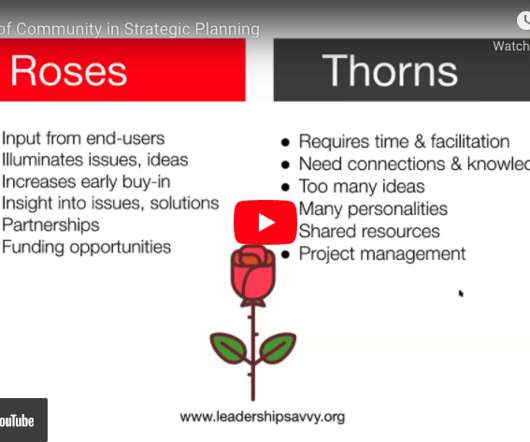Trainer’s Notebook: Facilitating Tech Training Internationally – Tips for Working with Interpreters
Beth's Blog: How Nonprofits Can Use Social Media
NOVEMBER 3, 2015
We had an incredible team of women tech advisers from Silicon Valley, all experts, and who taught classes on how to use various tools such as Google, Canva, and Indiegogo, complete with detailed work books with exercises. You have to think of your interpreters as extensions of your facilitation techniques.












Let's personalize your content